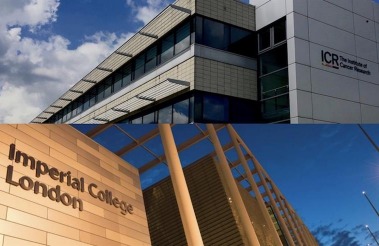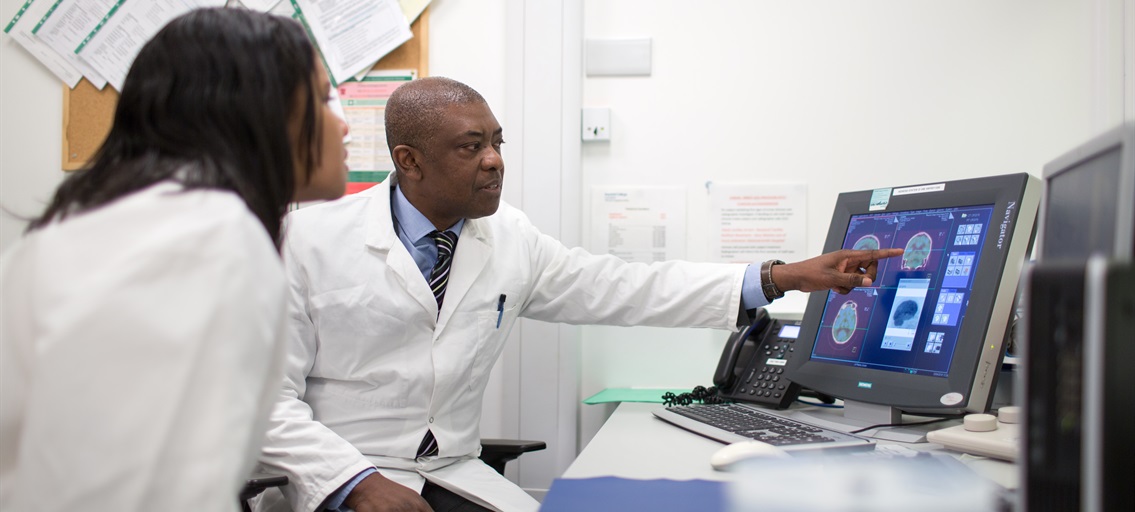Sep 30, 2020, 17:52 PM
by
User Not Found
Two of the UK’s foremost academic research institutions, The Institute of Cancer Research, London, and Imperial College London, are coming together with funding from Cancer Research UK to launch the new £13 million centre.

Bursting cancer cells with microscopic bubbles and analysing the immune system in real time are just two of the initial projects at the new Cancer Research UK Convergence Science Centre at The Institute of Cancer Research and Imperial College London.
Two of the UK’s foremost academic research institutions, The Institute of Cancer Research, London, and Imperial College London, are coming together with funding from Cancer Research UK to launch the new £13 million centre.
Their shared vision is for a centre dedicated to convergence science that integrates the knowledge, methods and expertise from different disciplines – from physics to data science, and from engineering and the biological sciences to medicine.
This will enable teams at the Convergence Science Centre to work together in completely new ways to speed up scientific discovery and innovation for people with cancer and create new treatments and technologies.
A vast array of opportunities
For example, in one project at the Centre, a team of biologists and physicists are exploring whether a specialised therapeutic version of ultrasound, called histotripsy, could be adapted to destroy pancreatic tumours located deep in the body.
The team will use ultra-focused, high-frequency soundwaves to target and break apart cancer cells using microbubbles. The soundwaves cause the microbubbles to rapidly expand and contract, putting a strain on the structure of the cancer cell so it breaks apart into harmless fragments.
In another project, researchers are fine-tuning a technique, originally developed to explore autoimmune diseases such as multiple sclerosis, to look at immune cells within a tumour, in real time.
The cancer experts and engineers are working together to investigate how the delicate balance between tumour-killing and tumour-promoting immune cells can tip as cancer evolves. It is hoped that this technology could be used to gain a better understanding of why immunotherapies work for some patients but not others.
Creating 'new solutions' in cancer research
Professor Paul Workman, Chief Executive of The Institute of Cancer Research, London, and Director of the Convergence Science Centre, said:
“It’s fantastic to think that microbubbles could be used to blow cancer cells apart, and this is just one example of the exciting innovation we expect to see within the new Convergence Science Centre.
“Our new centre will be a coming together of world-class researchers in fields such as engineering, physics, chemistry and AI, collaborating closely with outstanding biologists and clinicians to create new solutions to the critical challenges we face in cancer research, diagnosis and treatment. It will open up exciting new frontiers in cancer research and lead to innovative treatments, tests and technologies for patients.
“With Cancer Research UK’s support, we have brought together two world-leading research organisations with complementary areas of expertise, building a vibrant collaborative culture that will nurture a new generation of truly multidisciplinary cancer researchers.”
Professor the Lord Ara Darzi, Director of Imperial College London’s Cancer Research Centre, said:
“Through this new centre and the training opportunities it presents, we will instil the importance of multidisciplinary collaboration into tomorrow’s researchers. Data science, physics and engineering are already transforming the way we treat cancer; integrating the expertise and knowledge of these disciplines is key to future-proofing our important work.
“By creating a new generation of convergent scientists, we’re opening the door to new tools, devices and algorithms that we could never have imagined before. The combined strength of our two world leading institutions will set the standard for the future of convergence science, to transform cancer research in the UK and across the world.”
'Bolder and more creative' approaches to research
The Convergence Science Centre is supported through a £13 million award from Cancer Research UK, which is providing the funding to create step changes in cancer research to address unmet medical needs in all cancers, particularly those that are hard to treat.
Michelle Mitchell, Cancer Research UK’s Chief Executive, said: “Although we are making great strides in the treatment of some cancers, for others such as pancreatic cancer, survival remains stubbornly low. If we are to make any real progress for patients, we need to take a bolder and more creative approach to research.
“By opening new avenues for collaboration, we can bring in fresh ideas from outside the traditional cancer research space. This convergence will allow us to tackle research challenges from completely different angles, so we can scale the hurdles that have prevented treatment breakthroughs in the past and secure the future for more people with cancer.”
Rajesh Agrawal, London's Deputy Mayor for Business, said: "London is a world-leading centre for life sciences with a rich ecosystem that has been at the very forefront of medical discovery and innovation for hundreds of years.
"I am very pleased that we can now add the Cancer Research UK Convergence Science Centre to the list of groundbreaking scientific initiatives in the capital."





Leave a commentOrder by
Newest on top Oldest on top